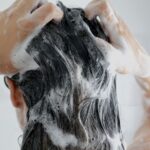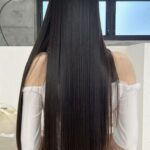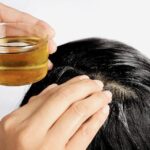Why is the scalp prone to itching and dandruff?
In Traditional Chinese Medicine, itching is a sign of qi and blood stagnation, similar to pain. Scratching an itch is a way to promote the flow of qi and blood, and it is a normal reaction, but it can be replaced by gentle patting to relieve the itch.
Dandruff occurs when the scalp is too dry and lacks proper moisture, leading to an imbalance between oil and water on the skin, making the scalp itchier with every wash.
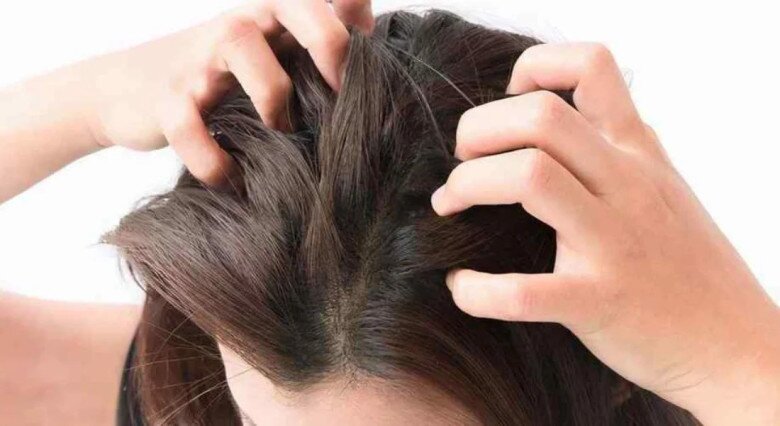
An itchy, flaky scalp is often caused by qi and blood stagnation and excessive dryness.
In reality, itching and flaking are signs of folliculitis, an inflammation of the hair follicles. According to dermatologists, issues like itching and dandruff are more common during erratic weather changes, especially during seasonal transitions. Additionally, there are two primary causes of scalp problems.
The first cause is bacterial folliculitis, which occurs when your skin produces too much oil. The buildup of sebum clogs pores, causing inflammation and making the condition more severe.
The second cause is related to lifestyle habits. For instance, staying up late, not changing pillowcases frequently, or wearing a helmet for extended periods can all contribute to itching and dandruff. Therefore, it’s crucial to practice proper and regular hair washing techniques to maintain a smooth mane and a healthy, infection-free scalp.

Our daily habits, such as not changing pillowcases often or wearing helmets for long periods, contribute to an itchy, flaky scalp.
How to wash your hair properly to reduce itching and dandruff?
In fact, daily hair washing is acceptable, but the key is to ensure a clean scalp. Residues on the scalp can clog pores. Dermatologists recommend wetting your hair first, then lathering the cleansing product in your palms before applying it to your scalp. Gently massage your scalp with a soft touch, avoiding scratching or rubbing with your nails. The washing process should last for about 2-3 minutes, and it’s essential to rinse thoroughly afterward, ensuring no product residue is left in your hair.
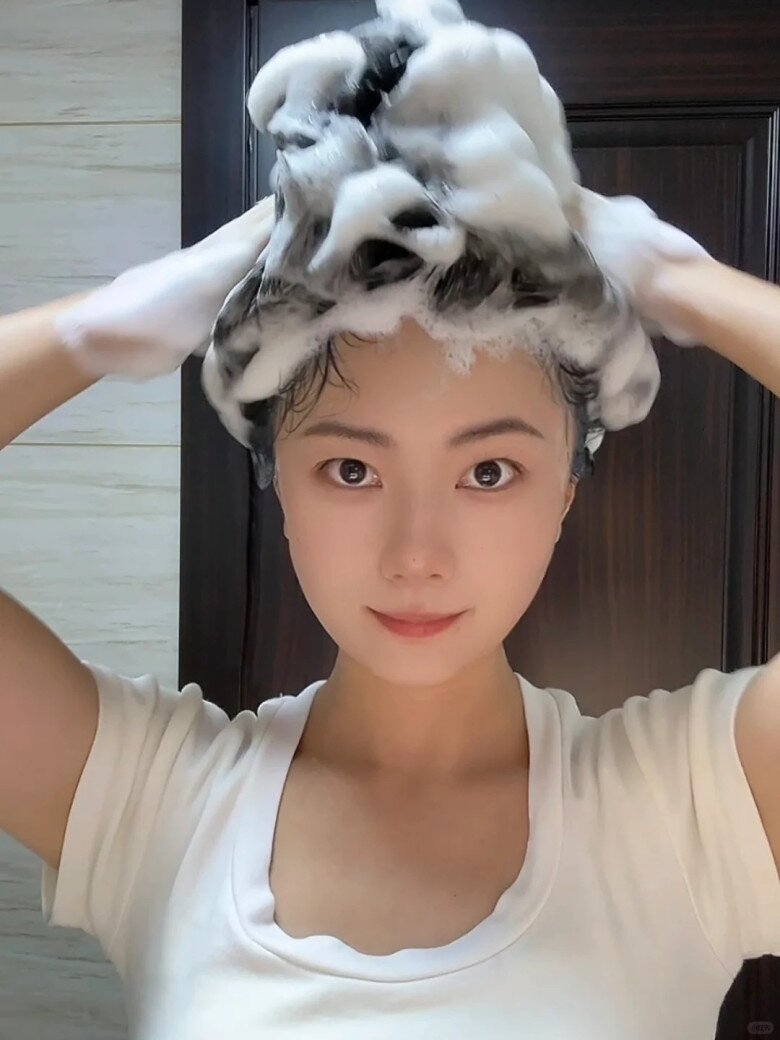
Avoid scratching with your nails, and ensure the process lasts for about 2-3 minutes to guarantee a thorough clean without damaging the scalp.
How do you know if your hair is thoroughly washed?
Ideally, you should wash your hair for at least 2-3 minutes, especially if you use styling products, to ensure no residue is left behind. The most important indicator is how your scalp feels after washing. If you don’t experience scalp tightness, hair loss, or dandruff, then you’ve achieved a good wash.
How to choose a shampoo to prevent itching and dandruff?
Dermatologists recommend opting for a mild, non-irritating shampoo that effectively cleanses your hair and scalp. If your hair feels dry and brittle after washing, it’s a sign that your shampoo isn’t suitable for your hair type. Additionally, during the summer, when the skin tends to become oilier, look for shampoos containing oil-control ingredients (e.g., salicylic acid) and antibacterial agents. If you’re prone to scalp itching, choose products containing menthol for relief.
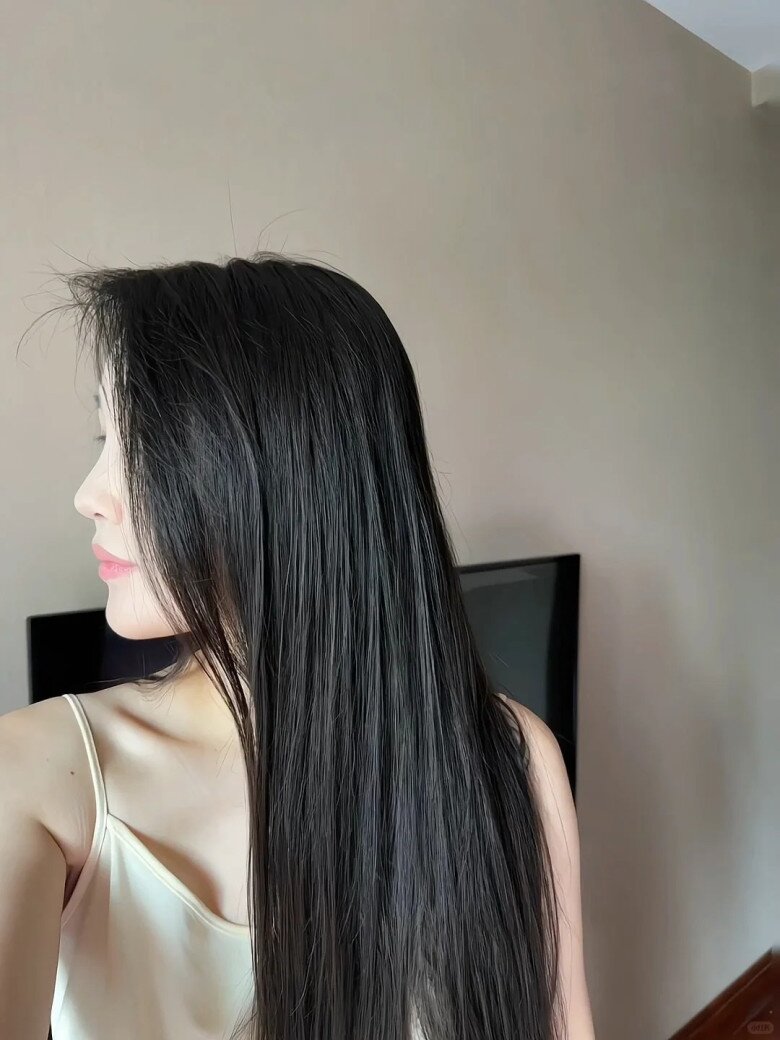
Choosing the right shampoo will help alleviate itching and flaking on oily scalps.
Furthermore, there’s no need to switch products frequently. Once you find a suitable shampoo, you can continue using it to avoid irritation from new ingredients. Dermatologists also advise against using dry shampoo or scalp care powders regularly. While these products may give the appearance of fresh, clean hair, they can lead to oilier scalps and worsen folliculitis.
What else can be done to minimize dandruff and itching on the scalp?
Daily scalp care involves not only proper cleansing and healthy lifestyle habits but also minimizing external damage. Dermatologists note that many of our habits unintentionally harm our scalps.
1. Don’t leave your hair wet after washing
Many people avoid using hairdryers due to concerns about high temperatures damaging the scalp. However, this can also be detrimental as damp environments promote bacterial growth. It’s crucial to partially dry your hair with warm air and then switch to cold air to complete the drying process, as extremely high temperatures can also harm the scalp.

Avoid leaving your hair wet for extended periods after washing.
2. Protect your scalp when outdoors
The harmful effects of UV rays on the scalp are often overlooked. Sunburn on the scalp is similar to sunburn on the skin, causing itching, redness, and swelling. Since most people don’t apply sunscreen to their scalps, wearing a hat is a common solution. However, if you find hats uncomfortable or warm, carrying an umbrella offers a safe alternative.

Properly protect your scalp from UV rays to prevent damage to the scalp and hair follicles.
3. Brush your hair regularly
In addition to cleansing, dermatologists suggest regular brushing. The scalp has numerous acupoints, and massaging them can help reduce stress. Brushing your hair is a beneficial habit, and doing so each morning can improve mental clarity and promote a sense of well-being. Use a hard-bristled brush or a massage brush with air cushions, and when washing your hair, massage your scalp with your fingertips to stimulate the acupoints. Combining brushing with scalp massage after washing can enhance the benefits.
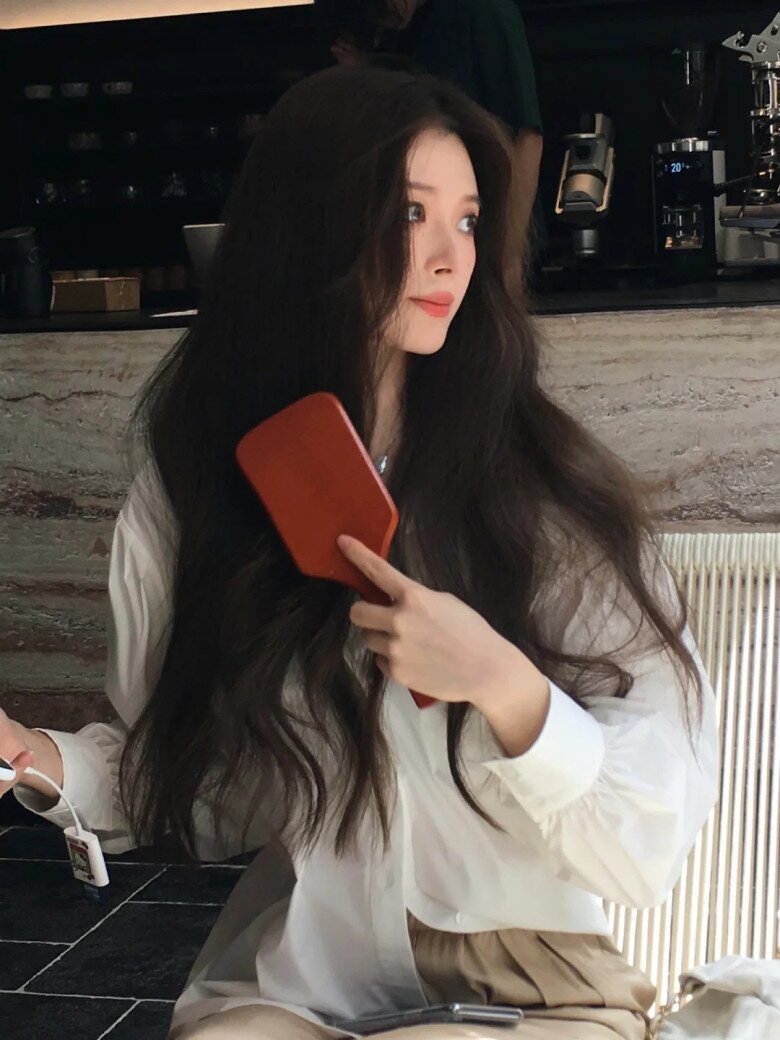
Regular brushing can help alleviate itching and flaking.
“Add This Secret Ingredient to Your Shampoo for a Flake-Free, Glossy Mane”
Dandruff is a common concern for many women, as it can be a source of embarrassment and negatively impact scalp and hair health. While there are numerous home remedies passed down among women to combat this issue, apple cider vinegar stands out as a particularly effective solution. Not only does it help eliminate dandruff, but it also offers a host of surprising benefits for women’s hair and scalp health.

























